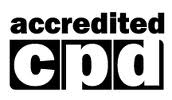In this session, we introduce you to new protected grounds recently added to the Ontario Human Rights Code and explain what this means for you as an employer and service provider. We also review how best to handle novel accommodation requests where it is not clear that a duty under the Code is triggered, as well as recent procedural developments of note at the Ontario Human Rights Tribunal that may impact your litigation strategy, and professionalism issues that commonly arise in human rights litigation. Finally, we will wrap up the session with a roundtable discussion, giving you an opportunity to share your own human rights challenges and opportunities.
This session will address:
- Gender Identity and Gender Expression
In June of 2012, Ontario introduced two new prohibited grounds into its human rights legislation – gender identity and gender expression. In this session we will discuss the steps that organizations should take to ensure that the rights of transgendered Canadians are respected both in employment and in the provision of services. - Help! Am I Required to Accommodate This?
Employers and service-providers often receive novel requests for accommodation. Dealing with accommodation requests is complicated enough – and it is even more complicated when it is not clear whether the needs in question are needs the organization has any legal duty to accommodate. However, one of the worst mistakes an employer can make is to refuse to consider accommodation at all. Using recent developments in family status accommodation and disability accommodation as our guide, we will present a practical approach for managing accommodation requests in the face of uncertainty about whether the needs identified are needs that you are actually required to accommodate. - Litigating Human Rights Cases at the HRTO
In this session, we will provide an update on procedural developments at the HRTO, including:- The Pieters case and its impact on the HRTO’s willingness to dismiss applications on the grounds that they have no reasonable chance of success
- When will an application be dismissed based on a signed settlement and release?
- Dismissal and deferral in the face of grievance arbitrations, civil actions and other alternate proceedings
- The Penner case: Can we expect to see fewer dismissals in the future where there has been a previous proceeding in an another forum?
- Professional Considerations in Litigating Human Rights Cases
Picking up from our discussion of the legal issues that arise in litigating human rights cases at the HRTO, we will discuss some of the complex professionalism issues that lawyers and in-house counsel encounter in this context. First, we will canvass the issues that can arise when both the organization and one or more of its management representatives or other employees are named as separate parties to the proceeding. Should all parties be represented by the same counsel? If so, what steps must be taken to ensure the interests of all parties are protected? How will the involvement of multiple parties affect your ability to resolve the case or, if that is not possible, develop litigation strategy? Second, we will canvass the professional issues that arise when the other party to the proceeding is an unrepresented individual, particularly one who is unsophisticated or whose capacity to participate in the proceeding is impacted by disability or other factors. - Roundtable Discussion
We will conclude the morning with an interactive roundtable discussion to provide participants with an opportunity to share the human rights challenges they face in their own organization, and obtain input both from the panel and from other participants who may have experienced similar challenges.
 |
This program has been accredited by the Law Society for 0.5 Professionalism Hour |
